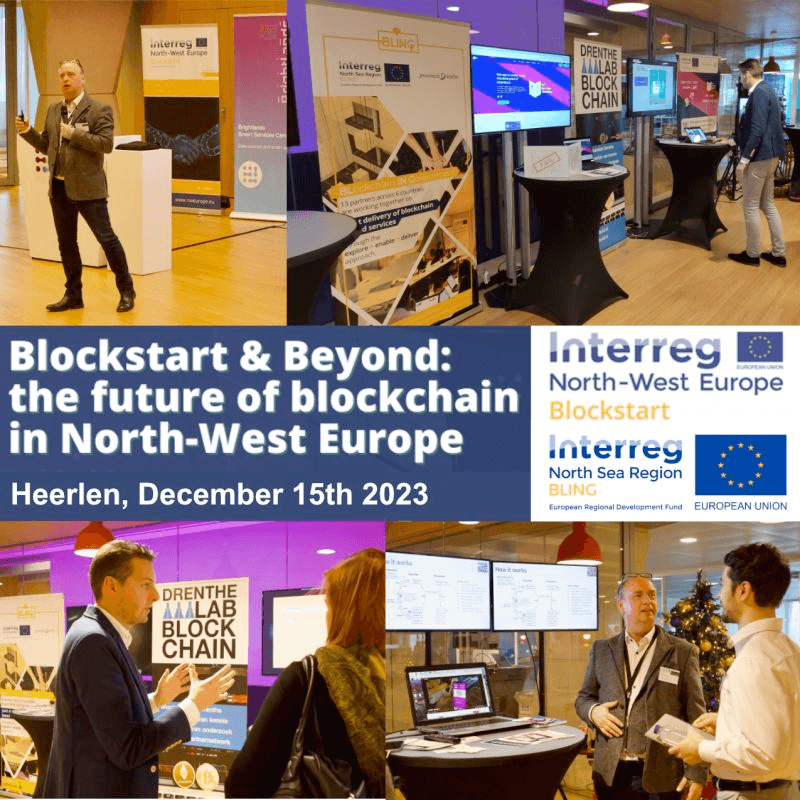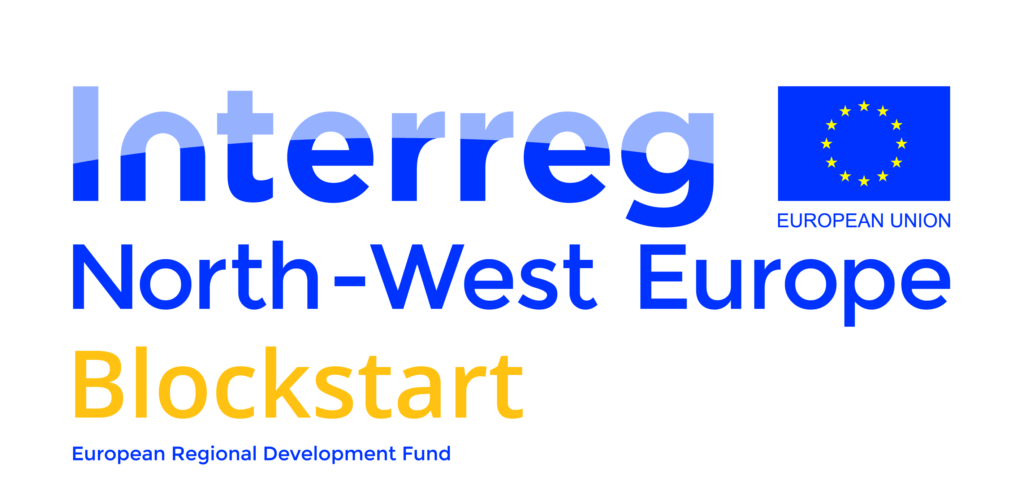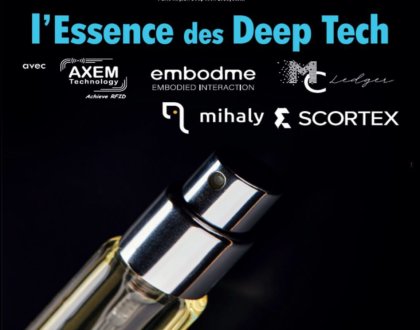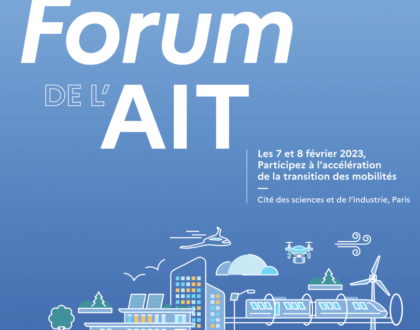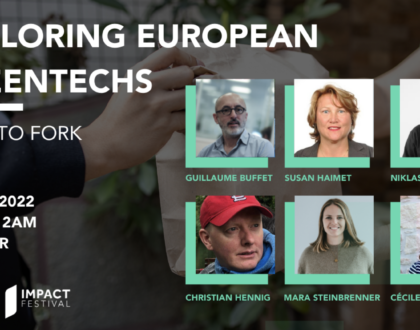GEScoin presented at Blockstart Conference

GESCoin Green Token Presented at the Blockstart & Beyond: the future of blockchain in North-West Europe Conference
Susan Haimet, Cofounder at MCLedger presented our green token GESCoin on December 15th at the Blockstart & Beyond: the future of blockchain in North-West Europe Conference at the Brightlands Smart Services Campus in Herleen, NL.
In 2022, the MCLedger team worked with Blockstart (Interreg) to secure funding for a Proof of Concept and build a working prototype of our utility token GESCoin and test it in with client data. The goal of GESCoin is to motivate and reward shippers for greener choices in the transport of goods in their supply chain. GESCoin tokens are issued in exchange for verified savings of CO2 by using existing infrastructures like rail or river for transport instead of all road transport. The token can then be exchanged on the carbon market.
The BlockStart program
BlockStart is an Iterrreg North-Western Europe project created to drive innovation in blockchain and competitiveness by bringing together SMEs and academics from universities in North Europe and the UK.
During our work with BlockStart our project was piloted by Medicen, the French partner in the the BlockStart ecosystem. We worked closely with Medicen to find answers to our remaining technology questions. The Blockstart program connected us with universities and technology providers in the Blockstart Program. Most notably, we worked with seasoned professionals in supply chain and blockchain at University of Windesheim on a feasibility study to determine the strengths and weakness of the GESCoin product. We also worked with Julien Marcadé and his team of seasoned blockchain consultants at Marcazor Conseil another partner in the Blockstart ecosystem. Marcazor worked with the MCLedger development team to complete our product architecture, answer business model questions on tokenization and to develop the prototype. We tested the project using our multimodal transport management platform My Modal One.
Brief discussion of Carbon Credits
Carbon credits could make a significant contribution in achieving net zero emissions in the next 20-25 years. Trade in voluntary carbon credits could grow 100-fold by 2050 if growing pains in the market are properly addressed, according to Joseph McMonigle in a keynote address to the S&P Global Carbon Markets Conference in Barcelona.
A carbon credit is a allowance giving a country or organisation the right to produce a certain amount of carbon emissions. Any left-over amount can be traded as a carbon credit if the full allowance is not used. Carbon credits can also be purchased from other companies if carbon emissions exceed the amount allowed. According to Gartner analysts, enterprise sustainability targets are creating a market for token-backed credits. “Carbon markets are expected to grow rapidly in the short-term creating market opportunities and mobilizing investment, and diminish in the longer term as countries close in on net zero emissions. » according to S&P Global
Brief presentation of GESCoin
The GESCoin token rewards shippers for carbon avoidance of emissions by choosing a greener mode of transport for all or a portion of the transportation plan in the supply chain. For each ton of CO2 avoided, GESCoin tokens are minted and shared among the transport partners with the major portion going to the company shipping the goods. The tokens can then be equated with carbon credits and will be traded on the carbon markets or for peer-to-peer value added services among the GESCoin ecosystem.
Tokenizing the CO2 avoidance provides a digital asset which is easily transferable among peers in the GESCoin ecosystem partners for services for example and on the carbon markets. GESCoin tokens represent value, they enable asset portability. An emerging use case for tokenized assets is the transfer of value in the metaverse.
Making sure that the carbon savings is auditable and verifiable is critical to the success of the project. Other carbon credit programs such as offsets from guarantees to preserve forests have been criticized for not representing real savings of CO2. The GESCoin project proposes verifiable CO2 savings and transparent calculations of carbon avoidance.
What’s next?
In 2023 we will be looking for corporate partners, pilot partners and funding to continue the GESCoin project. Please feel free to contact us for any further information.
Susan Haimet, Cofounder
MCLedger
Susan@mcledger.io
Reference: Gartner.com. (2023). [online] Available at: https://www.gartner.com/doc/reprints?id=1-2BU2YRWU&ct=221128&st=sb [Accessed 4 Jan. 2023].
Reference : S&P Global Carbon Markets (2023) www.spglobal.com. (n.d.). Carbon Markets | S&P Global. [online] Available at: https://www.spglobal.com/esg/solutions/carbon-markets [Accessed 4 Jan. 2023].


